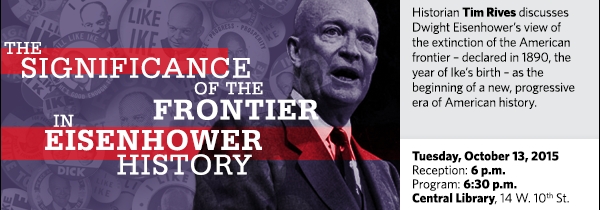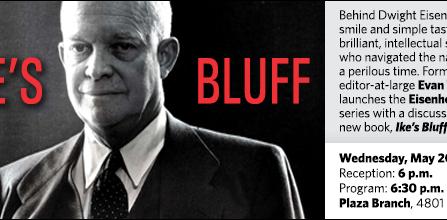2015 commemorates not only the 125th anniversary of the birth of President Dwight D. Eisenhower, but also the U.S. Census Bureau’s declaration that the American frontier had closed. As historian Tim Rives explains, these two events are not unrelated.
Like other progressives of his generation, Eisenhower saw the extinction of the frontier as the end of the first phase of American history, and the beginning of a new age in which the federal government would replace the lost reservoir of free land and abundant resources with economic cooperation and individual security through social programs. More than any other single factor, Eisenhower’s interpretation of the vanished frontier is what distinguishes his “Middle Way” political philosophy from the conservative wing of the Republican Party he led through two terms as a president.
Tim Rives is the deputy director and supervisory archivist of the Dwight D. Eisenhower Presidential Library, Museum and Boyhood Home in Abilene, Kansas.
This presentation is part of the Eisenhower 125 series co-presented by the Dwight D. Eisenhower Presidential Library, Museum and Boyhood Home with support from the W.T. Kemper Foundation - Commerce Bank, Trustee.

